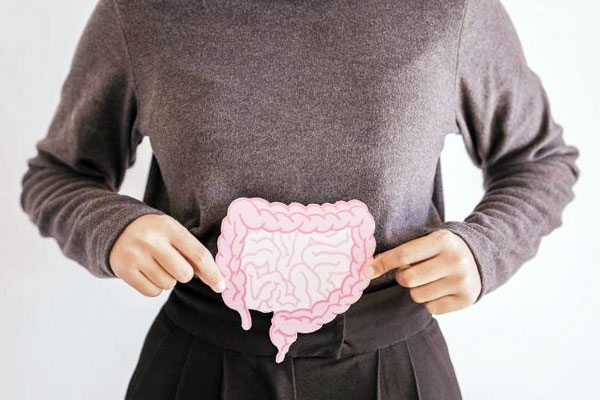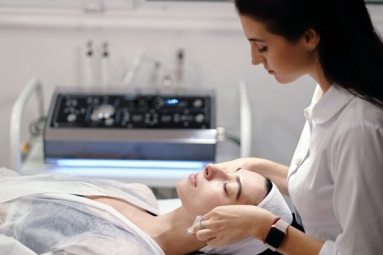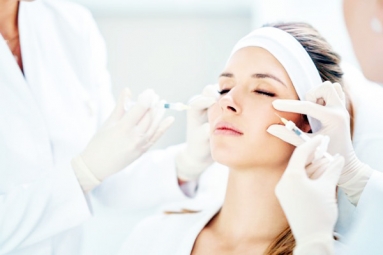
(Image source from: Canva.com)
Skin often remains unaffected despite diligent skincare routines. The underlying reason may not lie in external factors, but rather, within your internal bodily processes. Your gut, encompassing the stomach, intestines, and colon, is pivotal for digestion, nutrient absorption, and waste elimination - a crucial component of your overall well-being. Interestingly, a strong correlation exists between the condition of your gut and the health of your skin. When your gut is not functioning optimally, it can have a direct impact on the appearance and well-being of your skin. According to Dr. Shubham Prasad, a gastroenterology and hepatobiliary sciences consultant at Fortis Escorts in Delhi, the gut-skin axis is a bi-directional relationship, where the state of the gut can influence skin health, and vice versa. The gut microbiome, a complex community of microorganisms within the digestive tract, plays a vital role in regulating systemic inflammation and immune function. An imbalance in the gut microbiota can lead to increased systemic inflammation, which may subsequently result in various skin problems.
The gut, a bustling hub of bacterial activity, plays a pivotal role in shaping our overall health, including the condition of our skin. Manipal Hospital, Pune, explains that this diverse community of microorganisms residing within our intestines is the primary force behind the intricate bond between gut health and skin health. By maintaining optimal digestion, bolstering the immune system, and influencing other physiological processes, these tiny yet mighty inhabitants are indispensable for preserving our holistic well-being. Dr Pawan Rawal, the head of the gastroenterology unit at Artemis Hospital, Gurugram, further affirms this profound connection, noting that the gut and skin, though seemingly unrelated, share a deep-rooted relationship. Both are considered barrier organs, constantly interacting with the external environment. The gut, in fact, produces hormones and neurotransmitters that directly impact skin functions, such as oil production and inflammation. Equally crucial is the understanding of the gut-brain-skin axis, wherein the gut-brain connection influences stress levels and mood, which can subsequently affect the health and appearance of our skin. Stress and mental health issues can exacerbate various skin conditions, underscoring the pivotal role a healthy gut plays in promoting our overall well-being.
An imbalanced digestive system can contribute to various skin issues, including:
Acne: Disruptions in gut bacteria can trigger inflammation, a key factor in acne development.
Eczema: Chronic inflammation linked to gut problems can worsen eczema symptoms.
Psoriasis: There is a connection between gut health and psoriasis flare-ups.
Rosacea: Gut-related inflammation can lead to the redness and flushing associated with rosacea.
Premature ageing: Chronic inflammation can speed up skin ageing, causing wrinkles and loss of elasticity.
Other skin problems: Digestive issues like bloating and constipation can indirectly affect skin health by depriving it of essential nutrients.
A well-functioning gut can significantly benefit the skin:
Reduced inflammation: A balanced gut microbiome helps lower systemic inflammation, leading to clearer and healthier skin.
Clearer complexion: Reduced inflammation can result in fewer breakouts and a more even skin tone.
Improved nutrient absorption: Optimal gut function ensures better absorption of skin-essential nutrients like vitamins A, C, D, and E, and minerals such as zinc.
Enhanced skin barrier function: A healthy gut supports the skin's ability to retain moisture and defend against irritants and pathogens.
Improve your gut health for better skin:
Focus on fiber-rich foods, fermented foods, and plenty of fruits and vegetables. Limit processed foods, excessive sugar, and unhealthy fats. The health of your gut depends on supporting the growth of beneficial bacteria. Nourishing these microbes with prebiotic fiber can be helpful. Staying well-hydrated by drinking sufficient water is vital for preserving gut and skin health. Managing stress through proven techniques is crucial, as it can negatively impact your gut. Regular physical exercise promotes a thriving gut microbiome. Allowing your body the 7-9 hours of high-quality sleep it needs each night is key for gut repair and regeneration. Limiting alcohol and caffeine intake, which can irritate the gut lining and contribute to dehydration, is advisable. If you suspect your gut health could be improved, don't hesitate to consult healthcare professionals for expert guidance.



















